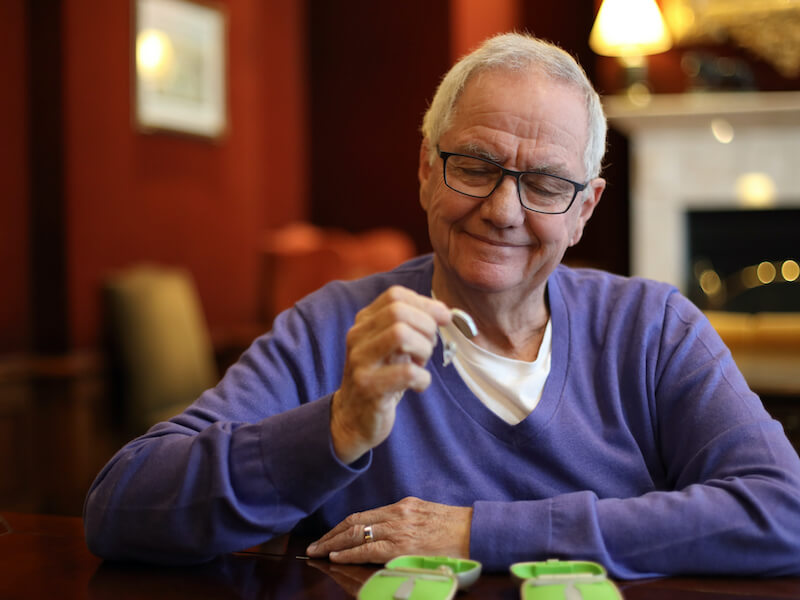
You’ve been looking forward to this day for quite a while. You received your new hearing aids. You’re so thrilled to be able to jump into your social life again. No more bad transitions or confused conversations. But your hearing aids just don’t seem quite right.
That’s because it’ll most likely take you a while to adjust to a new pair of hearing aids. This can be an annoying transition. You were so looking forward to enjoying your hearing again and it feels like it’s hard to be patient.
But there are several tips you can use to reduce this transition period. Pretty soon, with a little practice, you will be paying attention to what you’re hearing rather than your hearing aids.
Tips that help you start Slowly
Your brain will take a little while to get accustomed to hearing certain sounds again no matter how sophisticated your hearing aids are. Use these tips to proceed slowly and deliberately give your ears time to adapt.:
- Initially, try to focus on one-on-one conversations: You might be setting yourself up for frustration if you wear your hearing aids in a crowded environment right out of the box. It’s just that it’s hard for your ear and brain to deal with focusing on all those different voices. Sticking to one-on-one conversations can help make that transition easier (and give you a little extra practice, as well).
- Use your hearing aids for a short duration: When you’re just beginning, you can practice by using your hearing aids for just a few hours at a time. Your hearing aids will probably feel a little weird in your ears for a while so starting slowly is fine. You can start to wear your hearing aids for longer durations as you become accustomed to them.
- Begin by wearing your hearing aids at home only: You’ll be less likely to experience noise pollution at home and you will be able to have a better amount of control over the sounds you’re hearing. This will help you focus on individual voices.
Get additional practice with these tips
There are some things you can do, as with any skill, that can help you with hearing aid practice. Some of these are even fun!
- Read along with the printed version while you listen to the audiobook.: This similar exercise can also be quite enjoyable. Your brain will learn to make associations between words and sounds by using this read along technique.
- Watch TV with the closed-captions enabled: It’s easy: Turn the TV on, put your hearing aids in, and enjoy. As you read the words you’ll also be hearing the characters speak, and your brain will start remembering what all these words sound like. This can give you some practice hearing and adjusting to speech.
- Just practice hearing: That’s right: sit in a quiet place and let your ears do the hearing. Start off by focusing on the sound of wind blowing through the trees or birds singing or nearby running water.
Tips to keep your hearing health up
Of course, one of the purposes of hearing aids is to keep your hearing as healthy as you can. But, as you take some time to get used to your new hearing aids, there are a few things you can do that your ears will thank you for.:
- Keep visiting us: There might be a temptation to think that once you have the right hearing aids, you won’t need to have anymore hearing exams. Nothing could be further from the truth. We can help tune your hearing aids, keep the fit comfortable, and continue to check in on your hearing. These follow up visits are really important.
- If you’re experiencing any pain, make sure you take note of it and tell us about it.: Because it shouldn’t hurt to wear hearing aids. So it’s important to let us know about any problems with fit or any pain right away.
Go slow and increase your time as you get used to your hearing aids
Your objective here will be to work your way up to wearing your hearing aids full time. Everybody’s different but the slow and steady approach often works best. You’ll want to get individualized advice from us on the best way for you to get accustomed to your new hearing aid.
These tips will help you live a more enjoyable and enriched life with your new hearing aids.
